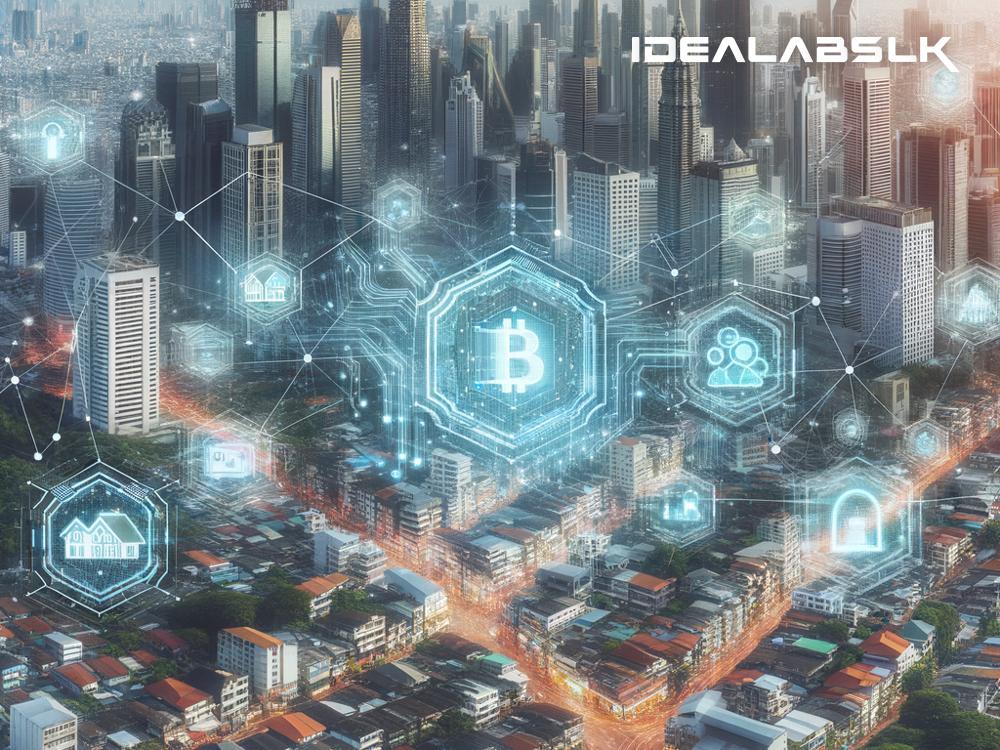Blockchain and AI in Real Estate: Empowering Investors with Data-Driven Insights
The real estate sector, known for its stability and lucrative returns, is undergoing a revolutionary transformation, all thanks to the advancements in Blockchain and Artificial Intelligence (AI). These technologies are not just buzzwords; they're reshaping how property investments are made, transforming traditional processes into more secure, efficient, and data-driven practices. Let’s dive into how Blockchain and AI are empowering investors with a fresh set of superpowers when it comes to navigating the real estate market.
What's the Big Deal with Blockchain?
Imagine a world where every property transaction, from the initial agreement to the final sale, is transparent, secure, and tamper-proof. That's precisely the promise of Blockchain technology in real estate. Blockchain acts like a digital ledger that records every transaction made. These records are decentralized, meaning they aren’t stored in one place but across several computers worldwide, making it nearly impossible to hack or falsify records.
For investors, Blockchain offers a level of security and transparency never seen before. It simplifies the transaction process, cutting through the cumbersome paperwork and reducing the risk of fraud. Furthermore, it makes property investments more accessible to a broader audience by enabling fractional ownership. This means investors can own parts of a property, breaking down financial barriers to entry and diversifying investment portfolios like never before.
Artificial Intelligence: The Smart Assistant Every Investor Needs
While Blockchain is revolutionizing the transaction process, AI is changing the way investors analyze and make decisions. Think of AI as your personal real estate guru, equipped with data from the past, present, and predictive insights for the future. This technology can analyze vast amounts of data – from market trends, property values, to neighborhood growth rates – in a fraction of the time it would take a human.
AI helps in predicting market trends, identifying lucrative investment opportunities, and even calculating the potential return on investments. It can evaluate risks and provide investors with insights that are not apparent at first glance. For instance, AI algorithms can analyze social media and web data to gauge public sentiment about a neighborhood, offering a unique perspective on its growth potential.
Moreover, AI-powered chatbots and virtual assistants are streamlining customer service, providing instant responses to investor queries. This not only enhances customer experience but frees up human agents to focus on more complex tasks, improving overall efficiency.
The Power of Combining Blockchain and AI
Individually, Blockchain and AI are game-changers, but when combined, they offer a powerhouse of capabilities for real estate investors. Blockchain provides a secure, transparent, and efficient transaction platform, while AI delivers data-driven insights and predictive analytics. Together, they empower investors to make informed decisions, minimize risks, and maximize returns.
This synergy can also create smarter, more efficient property management systems. Imagine a Blockchain-based contract that, upon receiving AI-processed signals of a rent payment, automatically unlocks a tenant's digital access to a property. This level of automation and security could redefine property management.
Overcoming Challenges and Looking Ahead
Despite the promise, integrating Blockchain and AI into real estate comes with challenges. Regulatory hurdles, privacy concerns, and the need for technological infrastructure are significant considerations. However, as these technologies evolve and become more mainstream, these obstacles are likely to diminish.
The potential for Blockchain and AI in real estate is immense. We’re just scratching the surface of what’s possible when these technologies are fully integrated into the sector. As they mature, we can expect more innovative applications that will further streamline transactions, enhance data analysis, and ultimately, democratize access to real estate investment.
In Conclusion
Blockchain and AI are not just futuristic concepts but are already beginning to transform the real estate investment landscape. They offer transparency, efficiency, and a level of data analysis that empowers investors to make more informed decisions. As we move forward, these technologies will continue to evolve, potentially making real estate investing more accessible, secure, and profitable for everyone involved.
For investors, staying informed about these technological advancements and considering their implications is crucial. The future of real estate is digital, and embracing these changes could be the key to unlocking unprecedented opportunities in the market.

